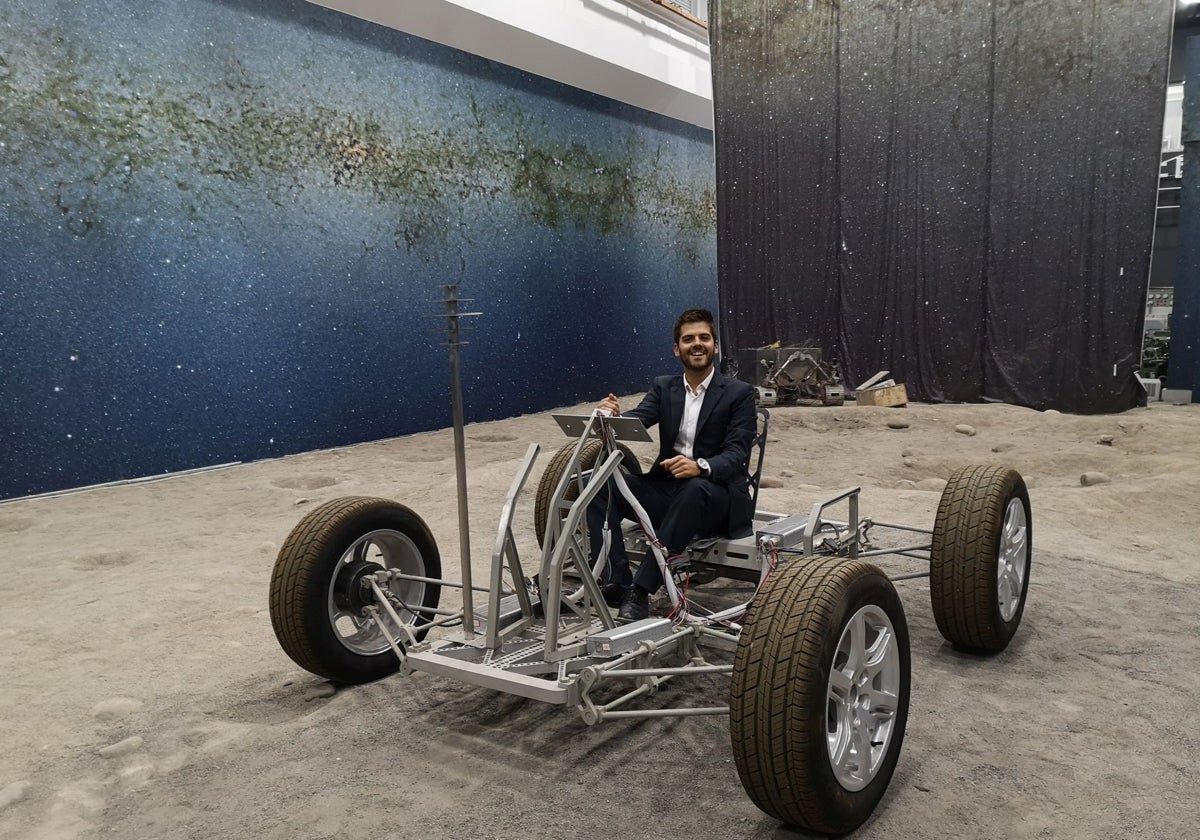Malaga engineer's experiment to grow plants on the moon to be tested in space for first time
The Green Moon project, led by engineer José María Ortega, has reached an agreement with a space launch company to travel on a mission in 2026
The vegetables that, in the not too distant future, will be grown on human bases on the moon could have a Malaga stamp. The Green Moon project, devised and led by engineer José María Ortega Hernández, aims to test the behaviour of plants in the lunar atmosphere. Although it has not yet reached that point, it will soon be possible to test it at least in outer space.
The initiative has entered into a partnership with the Spanish technology company Orbital Paradigm. As a result, there will be seeds on board its first mission in Earth orbit, scheduled for the end of 2026. As the young engineer from Malaga explained to SUR, they will travel aboard a pressurised capsule developed by his new collaborators, "which has been specifically designed for experimentation in weightlessness and cargo recovery after the mission".
During several days in orbit, the Green Moon project will investigate the growth of plants in conditions similar to those on the Moon. To do this, it will use a "regolithic simulant" (a soil similar to that which could be found there) that has been made in Granada with soil from the islands of Lanzarote and La Palma, combining knowledge of plant biology and planetary geology in a real space environment. "This will serve as a scientific demonstrator, from which data will be obtained and used to further develop knowledge in space agriculture," Hernández said.
This mission represents a crucial step in the career of the Malaga-based project, as it will allow us to analyse how plants interact with a real space environment of weightlessness. In addition, the Orbital Paradigm capsule will allow the monitoring of the experiments during the flight, thus maximising the ability to obtain valuable scientific information.
In a few years we will go to the moon, because everything is moving very fast"
The collaboration agreement was signed on 13 December at the Orbital Paradigm facilities in Madrid, an alliance that reflects the innovative capacity of Spanish engineering and space science. "This mission will mark a before and after for our project. It will be like an intermediate step before seeing Green Moon project in being tested on the Moon," Hernández said.
What the experiment will be like
The capsule with the germinating seeds inside will be orbiting the Earth for about 14 days, "so we will see the complete cycle of the initial growth of a plant, and we will be able to understand very well how that growth will be under weightless conditions", within the pressurised encapsulation provided by the collaborating company.
Two options are being considered for the launch: the Miura 5 rocket, from Spain's PLD Space; or a Falcon craft from Space X (Elon Musk's company).
"The 'Learn To Fly' mission will be the first Spanish space transport vehicle to execute an orbital return mission and will provide the country with a key strategic capability," added Orbital Paradigm. "It is a key step in the industrialisation of space, and allows us to provide our customers with the frequent and accessible microgravity logistics service they need."
"The news is that we have actually booked the site. We are very excited, it is a tremendous opportunity because the Green Moon project grows from the experiments we have been doing on Earth", the engineer from Malaga explained.
"Really, this is a historic moment for Green Moon. Now we are taking an intermediate step, to test our experiment and our technology, but in a few years we will go to the Moon, because everything is advancing so much and so quickly... We are convinced of that," Hernández concluded.

